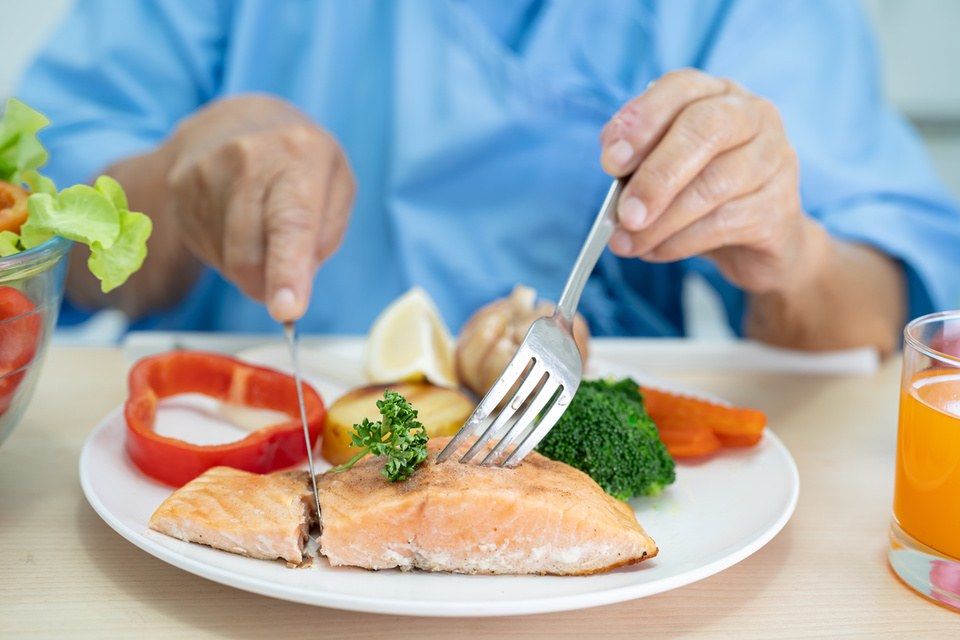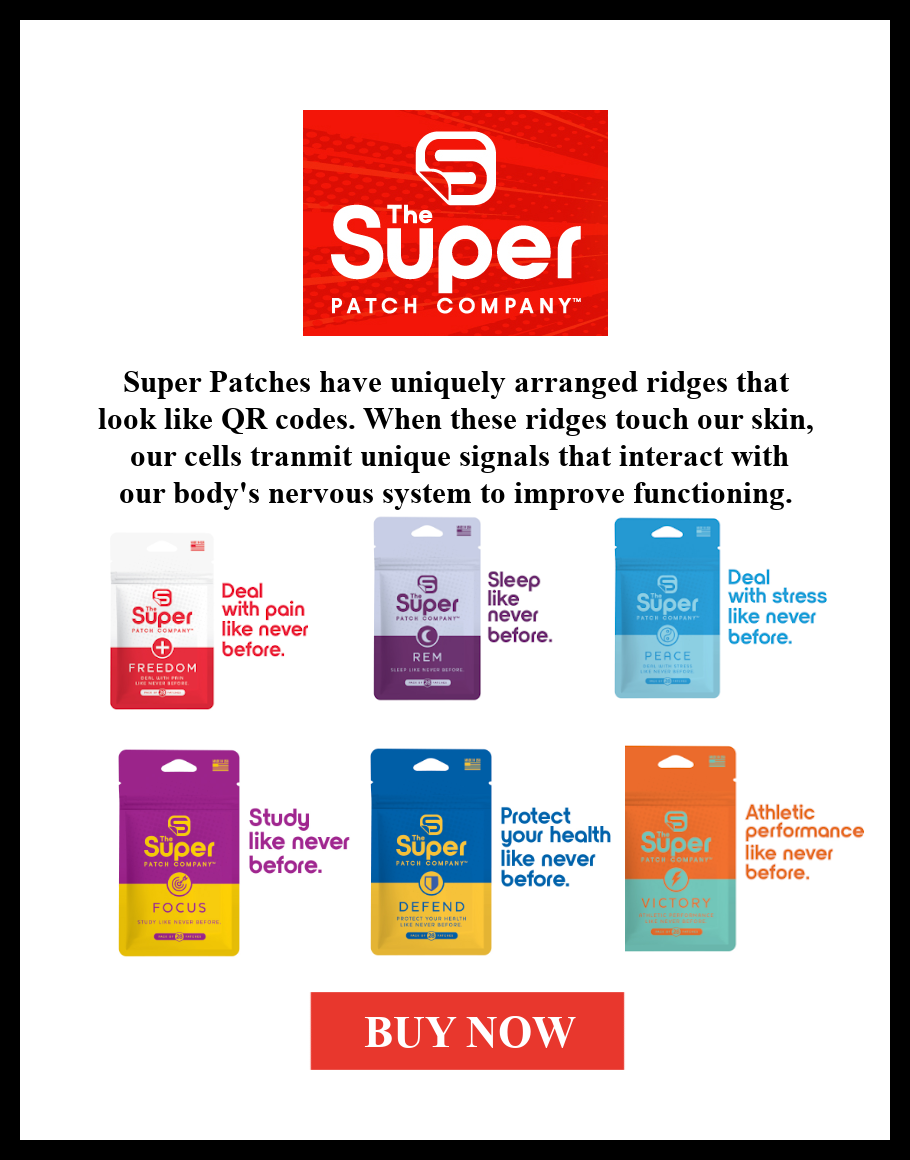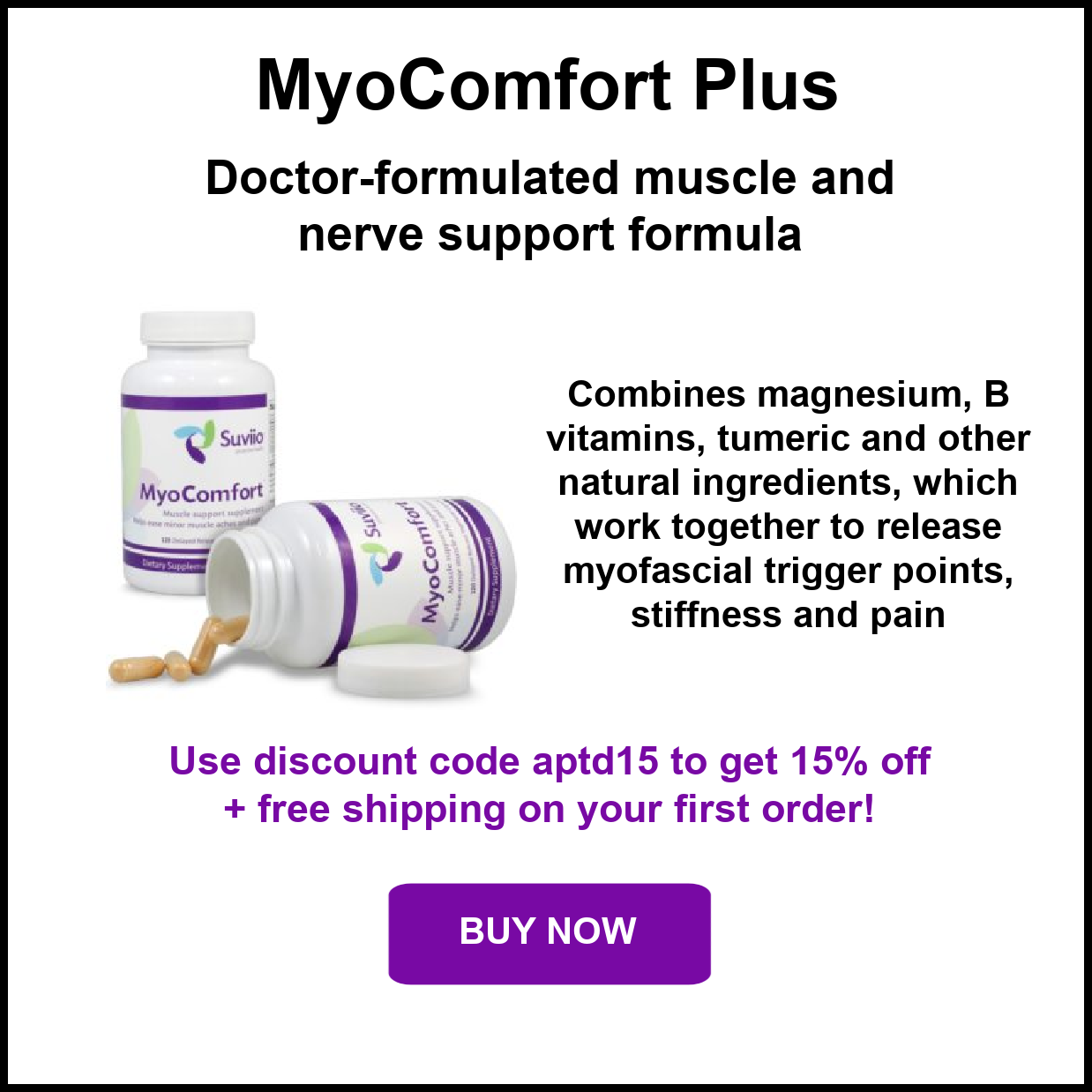
Nutrition is a crucial factor in maintaining optimum health and managing most medical conditions, including chronic pain. When an injury occurs, whether someone is an elite athlete in the peak of health injured in a sport, a normally active individual injured in an accident or someone in chronic pain injured in a fall, the body has an increased need for nutrients.
Proper nutrition plays a crucial role in the recovery process, optimizing healing, and reducing pain. Fueling the body with the right nutrients can accelerate recovery, rebuild damaged tissues, and get the person back to the pre-injury level of health faster.
This article explores the importance of nutrition in injury recovery and provides valuable insights into optimizing healing and reducing pain through a well-balanced diet.
Protein for Tissue Repair and Recovery
Protein is an essential nutrient that aids in tissue repair and recovery. It provides the building blocks necessary for the synthesis of new cells and tissues. People recovering from injuries should focus on consuming high-quality protein sources such as lean meats, fish, poultry, eggs, dairy products, legumes, and plant-based proteins. Meeting protein requirements can enhance the healing process, promote muscle regeneration, and reduce pain associated with tissue damage.
Anti-Inflammatory Foods for Injury Recovery
Inflammation is a natural response to injury, but excessive or prolonged inflammation can impede the recovery process and increase pain. Incorporating anti-inflammatory foods into the diet can help manage inflammation and alleviate discomfort. Foods rich in omega-3 fatty acids, such as fatty fish (salmon, mackerel), walnuts, chia seeds, and flaxseeds, possess powerful anti-inflammatory properties. Additionally, fruits and vegetables, especially those rich in antioxidants, can help combat inflammation and support the body's healing mechanisms. Fruits and vegetables especially high in antioxidants include:
- Berries: Blueberries, strawberries, raspberries, and blackberries are known for their high antioxidant content. They are rich in anthocyanins, vitamin C, and various other antioxidants that reduce inflammation and support the immune system and brain function.
- Citrus Fruits: Oranges, grapefruits, lemons, and limes are loaded with vitamin C, a potent antioxidant that supports the immune system, lowering the risk of infection and promotes tissue healing.
- Leafy Greens: Spinach, kale, Swiss chard, and other dark leafy greens are packed with antioxidants such as vitamin C, vitamin E, and beta-carotene. They also provide minerals and fiber, making them nutrient-dense additions to your diet.
- Cruciferous Vegetables: Broccoli, cauliflower, Brussels sprouts, and cabbage are part of the cruciferous vegetable family, known for their high antioxidant and anti-inflammatory properties. They contain compounds like sulforaphane and indole-3-carbinol that offer numerous health benefits.
- Tomatoes: Tomatoes are rich in lycopene, a powerful antioxidant that gives them their vibrant red color. Cooking tomatoes actually increases the bioavailability of lycopene, making tomato sauces and cooked dishes beneficial choices.
- Bell Peppers: Red, yellow, and orange bell peppers are not only colorful and flavorful but also excellent sources of antioxidants such as vitamin C and beta-carotene.
- Grapes: Grapes, particularly dark-colored varieties like red and purple grapes, contain resveratrol, a potent antioxidant that may have various health benefits.
- Pomegranates: Pomegranates are known for their high concentration of antioxidants, particularly punicalagins. They also contain other compounds that contribute to their anti-inflammatory properties.
- Cherries: Cherries, especially tart cherries, are packed with antioxidants called anthocyanins, which have been associated with reduced inflammation and improved recovery from injuries.
- Kiwi: Kiwi is a nutrient-dense fruit rich in vitamin C, vitamin E, and other antioxidants. It also contains the antioxidant enzyme called actinidin, which aids in digestion.
Recommended Product for Nutritional Support
Micronutrients for Healing and Pain Relief
Several micronutrients play a critical role in injury recovery and pain relief. Vitamin C, for example, is essential for collagen synthesis, which is crucial for wound healing and connective tissue repair. Citrus fruits, berries, kiwi, bell peppers, and leafy greens are excellent sources of vitamin C. Similarly, vitamin D is vital for bone health and immune function, and a deficiency can impede the healing process. Sources of vitamin D include sunlight exposure, fatty fish, fortified dairy products, and egg yolks. Furthermore, minerals like calcium, magnesium, and zinc also contribute to proper bone healing and pain management.
Another way to get significant amounts of micronutrients is through high quality supplements.
Another Recommended Product for Injury Recovery Support
MYOCOMFORT PLUS

Hydration and Nutrient Delivery for Healing Injury
Proper hydration is often overlooked but is crucial for injury recovery. Staying well-hydrated enhances blood flow and nutrient delivery to the injured area, facilitating healing. Aim to consume adequate water and hydrating fluids throughout the day, especially during exercise or after physical therapy sessions. Electrolytes, such as sodium, potassium, and magnesium, are also important for maintaining fluid balance and supporting optimal muscle function.
Timing of Nutrition for Injury Recovery
Timing is another important aspect of nutrition in injury recovery. Consuming a nutrient-rich meal or snack within the first hour after exercise or a physical therapy session helps kickstart the recovery process by replenishing glycogen stores, repairing damaged tissues, and reducing inflammation.
Foods to Avoid During Injury Recovery
- Processed and Fried Foods: Processed foods, such as fast food, packaged snacks, and deep-fried items, are often high in unhealthy fats, sodium, and additives. These foods can contribute to inflammation in the body and may slow down the healing process. Opt for whole, unprocessed foods instead.
- Sugary Foods and Beverages: Foods and drinks high in added sugars, such as soda, candy, pastries, and sugary cereals, can promote inflammation and potentially impair the immune system. Excessive sugar consumption can also interfere with wound healing and increase the risk of infections. Choose natural sources of sweetness, like fruits, in moderation.
- Trans Fats: Trans fats, commonly found in processed and packaged foods, margarine, and many fried and baked goods, are known to promote inflammation and increase the risk of heart disease. Avoid or minimize the consumption of foods containing partially hydrogenated oils or trans fats.
- Alcohol: Alcohol can interfere with the healing process by impeding nutrient absorption, impairing immune function, and promoting inflammation. It can also increase the risk of complications, such as delayed wound healing. It's best to avoid alcohol during injury recovery to support optimal healing.
- Excessive Sodium: High-sodium foods, such as processed meats, canned soups, and salty snacks, can contribute to water retention and inflammation in the body. Too much sodium can also interfere with the body's ability to regulate fluid balance. Opt for fresh foods and season meals with herbs and spices instead of relying on excessive salt.
- Refined Grains: Foods made with refined grains, such as white bread, white rice, and refined pasta, have been stripped of their fiber and essential nutrients. These foods can lead to blood sugar spikes and promote inflammation. Choose whole grains like quinoa, brown rice, and whole wheat bread for added nutrients and fiber.
- High-Added-Sugar Sports Drinks and Energy Bars: While sports drinks and energy bars may seem appealing for their quick energy supply, they often contain high amounts of added sugars and artificial ingredients. Opt for natural sources of hydration, such as water and electrolyte-rich foods like coconut water, and choose whole food snacks for sustained energy.

Find Healthcare Providers Who Specialize in Nutritional Medicine for Pain
A consultation with a healthcare provider specializing in nutritional medicine to develop an individualized nutrition plan tailored to the patient’s specific injury, nutritional needs, and goals is always advisable.
Conclusion
Nutrition plays a significant role in optimizing healing and reducing pain during the injury recovery process. Incorporating a well-balanced diet rich in protein, anti-inflammatory foods, and essential micronutrients can accelerate recovery, rebuild damaged tissues, and manage pain effectively.
Related Articles
Holistic Treatments for Acute Pain
An Anti-Inflammatory Diet for Pain Relief












Comments